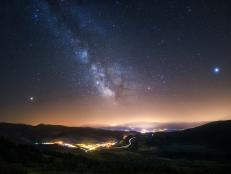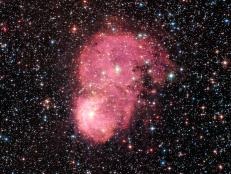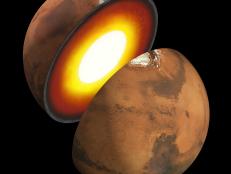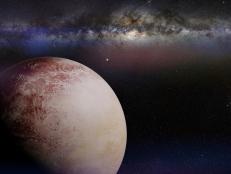All Space Articles
Showing 181 - 195 of 491 results
Reusable Rockets: Expanding Space Exploration Possibilities with Retrievable Spacecraft
With the evolution of reusable rockets through commercial companies such as SpaceX and Blue Origin, the cost of space exploration is decreasing. Learn more about today's "space race."
July in the Sky: Celestial Events Happening This Month
With eclipses, meteor showers, and more, it's a busy month in the night sky this July. Take some time this summer to look up and enjoy these cosmic wonders.
Celebrating Hubble's 30 Year Legacy
Three cheers for the Hubble! First launched in 1990 aboard the Space Shuttle Discovery, the storied space telescope is celebrating is thirtieth year in lonely orbit around the Earth.
Welcome to the Surface of Mars
Through the use of cutting-edge instruments, scientists finally have the opportunity to probe deep beneath the surface and ascertain exactly how the terrestrial planet formed.
Why Does Pluto Have Such a Weird Orbit?
Pluto is the black sheep of the planets in our solar system and it looks like astronomers aren’t sure how long Pluto will remain in its present orbit.
Astronomers See Flashes from Behind a Black Hole
Want to see what’s behind a black hole? Easy. You just…stare at it. The whole thing is pretty weird to contemplate, but an excellent example of the space-bending (and mind-bending) powers of black holes.
What Screaming Black Holes are Telling Us
In 2002, NASA’s orbiting X-ray observatory, the Chandra telescope, mapped out the movements of hot gas in a cluster of galaxies sitting 250 million light-years away.
Want to See a Black Hole’s Magnetic Field? Now’s Your Chance
A couple years ago, the team of astronomers with the Event Horizon Telescope wowed the world by providing our first-ever snapshot of a real-life black hole. Now they’ve done one better and mapped out the swirling magnetic fields around the monster. It’s our first ever glimpse of the forces that power the largest engines in the universe.
The Nobel Prize Fell Into a Black Hole (and That’s a Good Thing)
The 2020 Nobel Prize in Physics is being awarded to scientists to have dedicated their careers to the study of black holes.
What to Know About the Crew-1 Spacewalks
We watched last year as the NASA and SpaceX Crew-1 mission launched and docked to the International Space Station. After roughly ten weeks aboard the station, Crew-1 also known as Expedition 64 is now preparing to take their first spacewalk of the year.
DNA's Building Blocks May Have Their Origins in Outer Space
One of life's building blocks could have originated in outer space. But if this experiment shows how these building blocks actually formed, how exactly did they get to Earth?
Is Interstellar Travel Really Possible?
Listen folks, I love a good sci-fi movie as much as anyone. Cruising around the galaxy, finding weird stuff, and blowing up aliens--it’s all good. But just because a writer can come up with something, it doesn’t make it possible. I’m sorry to say that we’re going to be bound to our solar system for a really, really long time. As in, probably forever.
What is “Dark Flow”?
It sounds super-scary: something from outside the universe, a force so unimaginable, is pulling every single galaxy towards it. What monstrosity of cosmic physics could it be?
NASA Astronaut Jeanette Epps Will Make History with Her Next Mission
It was announced this week that Astronaut Jeanette Epps will be added to NASA's Boeing Starliner-1 mission to the international Space Station. She will be the first Black astronaut to live on the ISS.
Fireball Meteor Soars Over Vermont
NASA identifies a meteor as it shoots over the Northeast, causing buildings to shake and a ‘nice little firework’ in the sky.


























